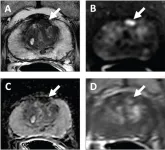(Press-News.org) Traumatic brain injury (TBI) is a leading cause of long-term disability and premature death, especially among military personnel and those playing contact sports. Substantial research has examined acute and chronic neurological consequences of TBI; however, non-neurological conditions associated with TBI are understudied. A new review paper by investigators from Mass General Brigham presents key findings on long-term associations between TBI and cardiovascular disease, highlighting that nervous system dysfunction, neuroinflammation, changes in the brain-gut connection, and post-injury comorbidities may elevate risk of both cardiovascular and cognitive dysfunction in TBI survivors compared to the general population. The review, published in The Lancet Neurology, emphasizes the need for future cardiovascular research, surveillance and intervention in TBI survivors.
“Despite decades of extensive traumatic brain injury focused research, surprisingly, there has been minimal progress in mitigating long-term outcomes and mortality following injuries. The cardiovascular effects of TBI may be a missing link in advancing our efforts to improve long-term quality of life and reducing mortality rates in TBI patients,” said first author Saef Izzy, MD, MBChB, of the Stroke and Cerebrovascular Center of Brigham and Women’s Hospital, a founding member of the Mass General Brigham healthcare system. “We have the opportunity to identify and improve targeted screening for high-risk popualtions, build preventative care strategies and improve outcomes for survivors of TBI.”
Existing research has identified a strong link between TBI and neurological conditions, such as Alzheimer’s disease and dementia. However, the mechanisms driving neurological disease after TBI remain poorly understood, despite decades of research. Izzy and co-authors from Spaulding Rehabilitation Hospital, Massachusetts General Hospital, Brigham and Women’s Hospital and elsewhere suggest that non-neurological effects of TBI, such as cardiovascular, cardiometabolic and endocrine dysfunction, may act as intermediaries contributing to neurological disease decades after TBI. For example, hypertension, hyperlipidemia, diabetes and hypopituitarism can negatively affect cognitive function and are established risk factors for dementia. These cardiometabolic risk factors have also been found to be more prevalent in those with a history of TBI, as demonstrated in over a dozen studies on military personnel, athletes and the general patient population, which are summarized by the authors of the review.
There are many potential links between TBI and cardiovascular and cognitive dysfunction. Neuroinflammatory pathways triggered by TBI could predispose individuals to atherosclerosis. Weight gain and sleep disturbances after an injury could pose independent or additive risks. Disruptions to connections between the nervous and gastrointestinal systems could throw off the balance of microbes in the gut, contributing to cognitive and cardiovascular effects. Investigators are actively pursuing research related to the role of the gut microbiome and are also working to create new models of TBI to further study the biological mechanisms underlying cardiovascular disease.
It remains unclear how single versus repetitive injuries, age at injury, TBI severity, and other comordibities impact cardiovascular risk. This is in part due to methodological limitations to current research, such as retrospective study designs and reliance on self-reported health data. Prospective studies can clarify what risk factors and biomarkers may be most relevant to cardiovascular dysfunction post-TBI.
“This review is a clarion call to conduct better assessments and earlier intervention for survivors of TBI who may have increased cardiovascular risk. It calls for new or expanded datasets that capture, over time, changes in biomarkers and targets associated with cardiovascular disease,” said corresponding author Ross Zafonte, DO, President of Spaulding Rehabilitation Network and Chief of the Departments of Physical Medicine and Rehabilitation at Massachusetts General Hospital and Brigham and Women’s Hospital. Zafonte is also the principal investigator of the Football Players Health Study at Harvard. “There is a growing recognition that many systems interact to produce multilevel dysfunction after TBI, with a series of nuanced comorbidities. Clinicians can begin to treat some of these conditions, and in the future, management guidelines can more directly address the cardiovascular health of TBI survivors.”
Authorship: Mass General Brigham co-authors include Farid Radmanesh (Brigham and Women’s Hospital) and Meagan Wasfy (Massachusetts General Hospital). Additional co-authors include Rachel Grashow, Patrick Chen, Herman Taylor, Rita Formisano, Fiona Wilson, and Aaron Baggish.
Disclosures: Izzy reports grants from the U.S. National Institutes of Health (NIH) and 2023 Stepping Strong Innovator Award. Zafonte reports receiving grants from the NIH and royalties from Springer and Demos publishing for serving as a co-editor of Brain Injury Medicine. Zafonte has also served as an advisor to Myomo, Oncare.ai, Nanodiagnostics, and Kisbee. He reports evaluating patients in the Massachusetts General Hospital Brain and Body–TRUST Program, which is funded by the NFL Players Association.
Funding: None.
Paper cited: Izzy, S et al. “Long-term risk of cardiovascular disease after traumatic brain injury: an opportunity for proactive screening and prevention” Lancet Neurology DOI: 10.1016/S1474-4422(23)00241-7
###
About Mass General Brigham
Mass General Brigham is an integrated academic health care system, uniting great minds to solve the hardest problems in medicine for our communities and the world. Mass General Brigham connects a full continuum of care across a system of academic medical centers, community and specialty hospitals, a health insurance plan, physician networks, community health centers, home care, and long-term care services. Mass General Brigham is a nonprofit organization committed to patient care, research, teaching, and service to the community. In addition, Mass General Brigham is one of the nation’s leading biomedical research organizations with several Harvard Medical School teaching hospitals. For more information, please visit massgeneralbrigham.org.
END
Freelance journalist Adele Waters speaks to scores of doctors unable to work or play with their children, forced to sell their homes or facing financial destitution by an illness they caught while doing their jobs.
She hears of “shockingly low” access to protective equipment faced by many doctors in their workplaces, and how some have struggled for medical colleagues to take their symptoms seriously.
Charities that provide financial support to doctors in need have seen a sudden rise in demand, and now there are calls for long covid to be considered an occupational disease to help doctors and other healthcare workers access support and financial ...
New research published in Diabetologia (the journal of the European Association for the Study of Diabetes [EASD]) shows that morning and afternoon physical activity are associated with a lower risk of developing type 2 diabetes across all population levels of education and income, but found no statistically significant association between evening physical activity and risk type 2 diabetes. The study is by Dr Caiwei Tian, Harvard University, Cambridge, MA, USA, and Dr Chirag Patel, Harvard Medical School, Boston, MA. and colleagues.
Physical activity is a preventive factor for type 2 diabetes, but its timing and consistency (in contrast with overall sum of physical activity) ...
New research has found that monkeys increase their use of scent markings to compensate for human noise pollution.
Pied tamarins (Saguinus bicolor) use both vocal calls and scent markings to communicate, and the new study – published in the journal Ethology Ecology & Evolution – is the first to investigate how primates change their communication strategies in response to noise pollution.
The pied tamarin has an extremely narrow geographic range in central Brazil, much of which now lies within the city of ...
Leesburg, VA, September 20, 2023—According to an accepted manuscript published in the American Journal of Roentgenology (AJR), upgrade and downgrade rates from targeted biopsy to radical prostatectomy were not significantly different between patients whose MRI examinations were clinically interpreted using PI-RADS Version v2.0 or v2.1.
“Implementation of the most recent PI-RADS update did not improve the incongruence in prostate cancer grade assessment between targeted biopsy and surgery,” wrote corresponding author Baris Turkbey, MD, from the Molecular Imaging Branch ...
Almost 80% of plastic in the waste stream ends up in landfills or accumulates in the environment. Oak Ridge National Laboratory scientists have developed a technology that converts a conventionally unrecyclable mixture of plastic waste into useful chemicals, presenting a new strategy in the toolkit to combat global plastic waste.
The technology, invented by ORNL’s Tomonori Saito and former postdoctoral researcher Md Arifuzzaman, uses an exceptionally efficient organocatalyst that allows selective deconstruction ...
A study of Canadian hospitalizations from 2007-2019 show that over 75% of patients with moderate to severe acute kidney injury (AKI) do not get appropriate follow-up kidney health testing after hospital discharge.
A study in Alberta, Canada, examined care received by over 20,000 hospitalized with AKI during hospitalization and after discharge between 2009 and 2017. The results, recently published in the American Journal of Kidney Diseases (AJKD), showed that a low proportion of patients with moderate to severe AKI were seen by a kidney specialist ...
DURHAM, N.C. -- Living things from bacteria to plants to humans must constantly adjust the chemical soup of proteins -- the workhorse molecules of life -- inside their cells to adapt to stress or changing conditions, such as when nutrients are scarce, or when a pathogen attacks.
Now, researchers have identified a previously unknown molecular mechanism that helps explain how they do it.
Studying a spindly plant called Arabidopsis thaliana, a Duke University-led team discovered short snippets of folded RNA that, under normal conditions, keep levels of defense proteins low to avoid harming the plants themselves. But when the plants detect a pathogen, these folded RNA structures ...
For the first time, scientists have mapped the reproductive strategies and life cycle of an endangered coral species, offering hope it can be clawed back from the path to extinction.
The purple cauliflower soft coral, Dendronephthya australis, is endemic to south-eastern Australia, with the largest populations historically found in the Port Stephens estuary in New South Wales. It is one of the 100 priority species on the Federal Government’s Threatened Species Strategy.
Not only is the future ...
Brown adipocytes are specialized cells that can use energy to produce heat. This property makes them attractive tools for the treatment of diseases like obesity and type 2 diabetes. Until recently, this therapeutic potential was constrained by limited understanding of how brown adipocyte tissue (BAT) develops from precursors.
A team led by investigators at Brigham and Women’s Hospital, a founding member of the Mass General Brigham healthcare system, identified a set of cellular signaling cues that lead up to brown ...
Philadelphia, September 20, 2023 – Researchers from Children’s Hospital of Philadelphia (CHOP) found that college athletes had worse post-injury outcomes related to concussions they experienced outside of sports than those they experienced while playing sports. Additionally, female athletes who sustained their injury outside of sports had more severe symptoms and more days in sports lost to injury relative to male athletes. These findings suggest the need for improved concussion recognition, reporting, and monitoring outside of sports.
The study was recently published online by the Journal of Athletic Training.
Concussions have the potential to ...



